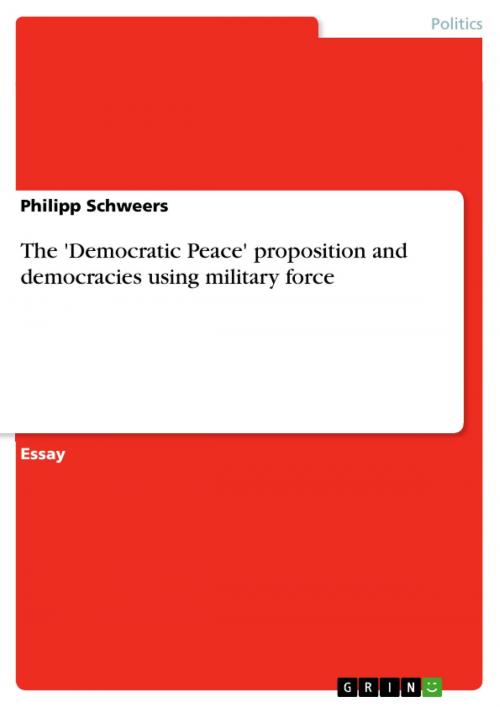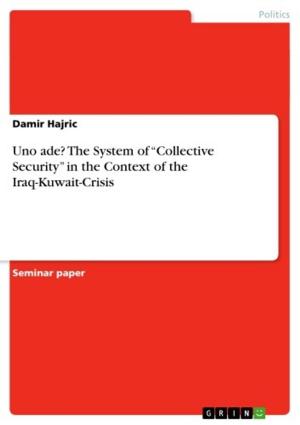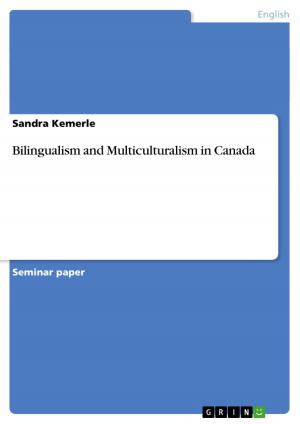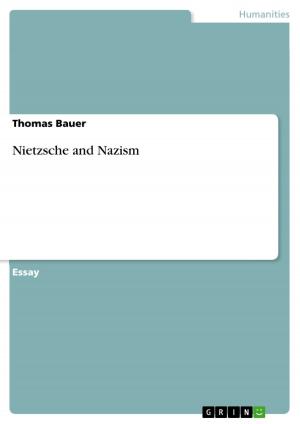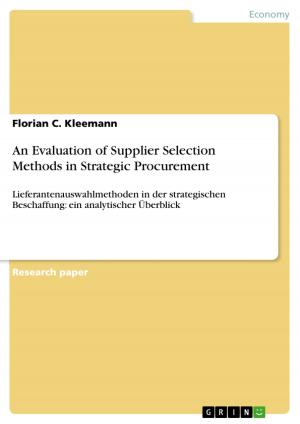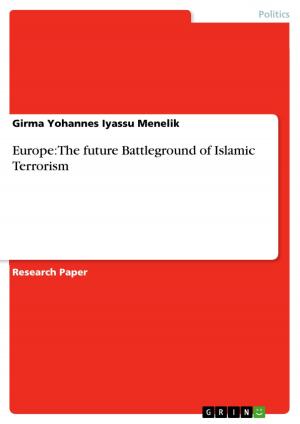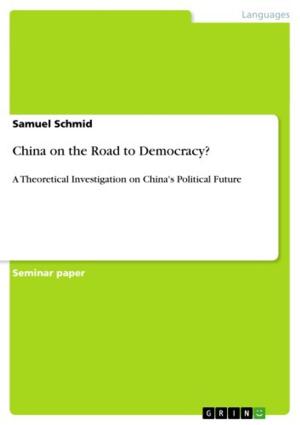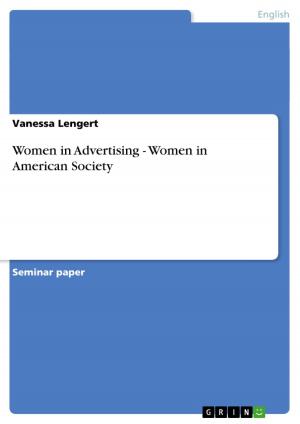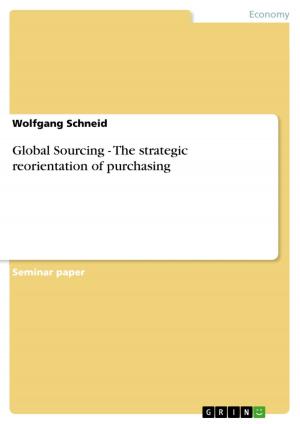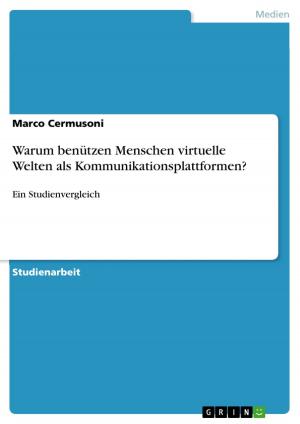The 'Democratic Peace' proposition and democracies using military force
Nonfiction, Social & Cultural Studies, Political Science, International, International Security| Author: | Philipp Schweers | ISBN: | 9783640355105 |
| Publisher: | GRIN Publishing | Publication: | June 23, 2009 |
| Imprint: | GRIN Publishing | Language: | English |
| Author: | Philipp Schweers |
| ISBN: | 9783640355105 |
| Publisher: | GRIN Publishing |
| Publication: | June 23, 2009 |
| Imprint: | GRIN Publishing |
| Language: | English |
Essay from the year 2009 in the subject Politics - International Politics - Topic: Peace and Conflict Studies, Security, grade: 8.0, University of Amsterdam, course: International Security, language: English, abstract: The theory of democratic peace is perhaps one of the most widely accepted propositions among international relations scholars today. A vast body of literature, from theoretical elaborations to statistical measurements, concerning liberal peace and/or democratic peace theory has been developed and has explored the proposition profoundly. While it is almost empirically proven that the probability of wars between democratic states is very low or even zero, war is obviously - while having a look on recent or current armed conflicts in which democratic states are engaged - still an option for liberal democracies with regards to disputes with non-democratic states. On a first glance this seems to be paradox. But, while having a deeper look into the scientific discussions, approaches and explanations, it seemingly becomes clear that these two parts - namely the peaceful conflict-resolution between democratic states and democracies' use of military force - are not conflicting.
Essay from the year 2009 in the subject Politics - International Politics - Topic: Peace and Conflict Studies, Security, grade: 8.0, University of Amsterdam, course: International Security, language: English, abstract: The theory of democratic peace is perhaps one of the most widely accepted propositions among international relations scholars today. A vast body of literature, from theoretical elaborations to statistical measurements, concerning liberal peace and/or democratic peace theory has been developed and has explored the proposition profoundly. While it is almost empirically proven that the probability of wars between democratic states is very low or even zero, war is obviously - while having a look on recent or current armed conflicts in which democratic states are engaged - still an option for liberal democracies with regards to disputes with non-democratic states. On a first glance this seems to be paradox. But, while having a deeper look into the scientific discussions, approaches and explanations, it seemingly becomes clear that these two parts - namely the peaceful conflict-resolution between democratic states and democracies' use of military force - are not conflicting.
